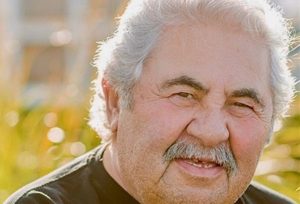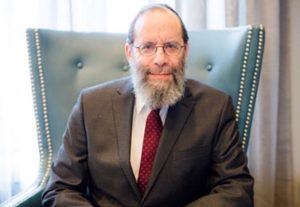Orthodox rabbis from across the country are calling for an end to physician-assisted suicide.
Citing the need to maintain moral clarity and opposition to policies that devalue life, more than two dozen rabbis have signed a petition objecting to the Supreme Court of Canada decision in the 2015 Carter case, which struck down a law against physician-assisted death (PAD), and to a recent parliamentary committee report that expands the scope of the court decision.
“We state that any participation in PAD is forbidden by Jewish law,” the petition asserts. “While the Supreme Court has decided to the contrary, we cannot be silent in the face of what our religious teachings and our conscience tells us is contrary to what is good and moral. We are committed to continue advocating for the value of life within our society.”
READ: ORTHODOX DOCTORS WRESTLE WITH ETHICS OF ‘ASSISTED SUICIDE’
The petition was prepared by Rabbi Chaim Strauchler of Shaarei Shomayim Congregation and Rabbi Daniel Korobkin of Beth Avraham Yoseph of Toronto. It lists six specific reasons for opposing the legalization and normalization of PAD. They are:
• Only God gives life and only God can take it away. “Even people who take their own lives are committing murder;”
• Every living moment is precious and “by diminishing the value of a terminally-ill patient’s life, society demeans the value of all human life;”
• People who are suffering may fall into depression or mental illness and can change their minds when their condition improves. “Resorting to suicide, even in the face of terminal illness, is a permanent solution to what is often a temporary problem;”
• A “slippery slope” could lead the medical establishment to encourage patients to end their lives “so as not be a burden on their loved ones and on an already overburdened health-care system;”
• Concern that health-care professionals who oppose the practice will be put into a conflict that pits their personal conscience against the demands of Canadian law;
• Imposition of PAD and a requirement that health-care practitioners participate in it – as has been recommended by the parliamentary committee – could deter members of many faith groups from entering the medical profession.
Rabbi Strauchler said that following the court decision and parliamentary investigation into amendments to the law, members of the medical profession came to him for advice.
“They had tremendous concerns about how they would practice medicine,” he said.
On March 9, his synagogue hosted a town hall forum in which the issue was addressed. At the same time, he and other rabbis reached out to other faith groups to see how they were approaching the impending changes to Canadian law.
After the meetings, “we felt it was important to offer a Jewish perspective coming from Orthodox rabbis,” Rabbi Strauchler said.
The petition was prepared and circulated in Orthodox quarters. He is hoping politicians will consider it when drafting legislation that would take into account the High Court ruling and the committee recommendations.
READ: CONCERNS RAISED ABOUT PHYSICIAN-ASSISTED DEATH POLICY
Critics of the parliamentary committee argue its recommendations opens the door for “mature minors” to give consent to PAD, that patients with mental health issues will not be properly screened to see if they are competent, and that there will be insufficient safeguards for health-care providers to opt out of PAD.
Rabbi Strauchler said the petition’s signatories are hoping to keep alive the debate on PAD and on the value society gives to human life.
Despite the rabbis’ unequivocal stand, Rabbi Strauchler said they’re aware of the concerns of PAD advocates.
“When we hear voices on the other side of the issue, we do not believe them to be uncaring or acting with ill intent,” he said. “We recognize there is great suffering at the end of human life.
“We recognize there is the other side to the issue and we hope to convince others of our position.”
At stake, Rabbi Strauchler said, was nothing less that the “legal and cultural debate on the meaning of life.”






